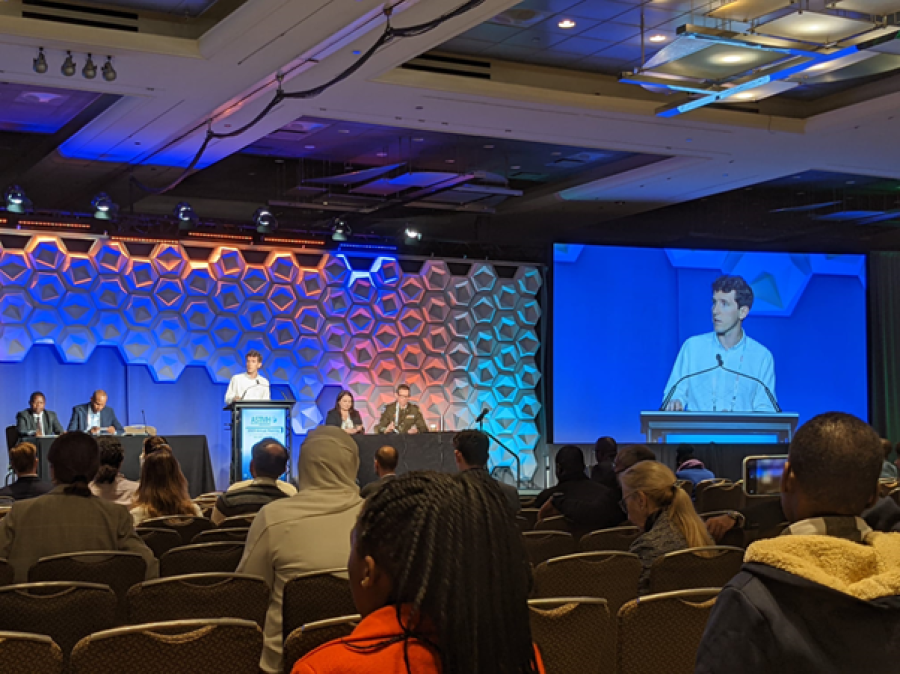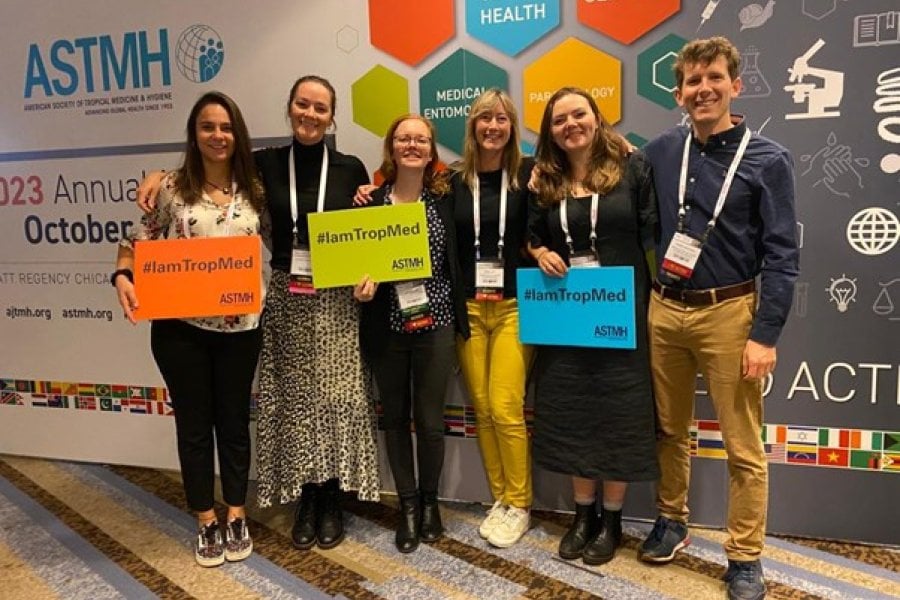
A few weeks ago, with the financial assistance of the LSHTM Malaria Centre, I attended the ASTMH Annual Meeting in Chicago to present the results of MATAMAL, a clinical trial of ivermectin for malaria control in Guinea-Bissau which I have been managing for the past four years, and which forms the basis of my PhD at LSHTM. It was my first time attending, and the conference was more than equal to the impressive surroundings of the city’s waterfront skyscrapers.
The conference's sheer scale became evident during the inaugural sessions, as thousands of global delegates convened to discuss the increased role scientists from the Global South should play, the imperative of mentoring future researchers and public health leaders, and the essentiality of political commitment for progress. The event's lineup, spanning presentations and posters, offered unparalleled insights into tropical medicine and international health, dwarfing the scope of most other conferences.
I first attended the Young Investigator Award talks, including an excellent presentation by LSHTM colleague Sophie Moss on the genomics of insecticide resistance in malaria vectors. This was a first taste of the extraordinary number of malaria sessions on offer. My session alone (Session 34: Malaria Drug Development & Clinical Trials) included work evaluating SMC programmes in Uganda, Mass Drug Administration in Senegal, therapeutics in early pregnancy in Tanzania, new PK/PD data for old drugs, and kinase inhibitors for cerebral malaria. I attended further talks on trials comparing net insecticides, malaria in migrant workers, and Peruvian malaria seroepidemiology, however the highlight was a heavily anticipated and well-attended session on the RTS,S malaria vaccine. In a packed ballroom, delegates from across Africa presented their experiences of the initial rollout, with promising results for both malaria and all-cause mortality, generating enough discourse on its (and R21’s) implications for the future of malaria control to over-run the timeslot. The in-room opinions of experienced malariologists and local policy makers added context and colour to the data.
My own presentation of the results of MATAMAL, reflecting the hard work of a great many people, was a singular experience. The scale of both the forum and work I was presenting was considerably greater than anything I had done before. Thankfully, it ran without a hitch and the presentation was well received, generating plenty of interest and discussion. ASTMH is a rare opportunity to gather world-leading researchers, even in a relatively small topic, in the same room; I was very fortunate to share face-to-face discussions with people who have been leading malaria-ivermectin research since its inception, putting faces to the names in my literature review. I also attended an IVERMEN symposium dedicated to the discussion of this novel tool, and observed the whole network engaging over the emerging results of several trials, including MATAMAL. The importance of collaboration, and remembering that no research exists in a vacuum, was made abundantly clear.
I attended ASTMH with our principal investigator, Anna Last, and MATAMAL’s tireless entomologist, Elizabeth Pretorius, who presented her poster on a method of rehydrating field-caught mosquitos for delayed parity assessment, based on years of grueling data collection. My other MATAMAL colleagues, Hristina Vasileva and Ellen Sugrue presented posters on characterising P. falciparum surface proteins, and the community acceptability of MATAMAL. The experience of travel is largely made by those you share it with and I was very glad to share it with my trial team, as well as meeting a Bissau-Guinean delegate, Baltazar Ca (INASA, Bissau), with whom we have hopefully built a lasting connection. We were able to explore a bit of Chicago: walk the Magnificent Mile, look out across the lake or up the grand towers along the river. We rode the L, ate good food, drank good beer and made it to a Chicago Bulls game, trying to make the most of our brief time in one of the great American cities. I did, however, spare my arteries the rigors of a deep-dish pizza.
In conclusion, ASTMH was a window into the variety and depth of tropical medicine research, and especially the constantly evolving landscape of malaria. Despite the work demonstrating the ever increasing impact of insecticide and drug resistance, there is great hope in the results of many studies into both established and novel tools for malaria control. The meeting was also a window into the enormous and lively city in which it took place, and I am already looking forward to next year’s meeting in New Orleans. I am hopeful, however, that the words of many African delegates are heeded, and that soon I can look forward to attending this meeting on the continent where so much of this research takes place.
Our postgraduate taught courses provide health practitioners, clinicians, policy-makers, scientists and recent graduates with a world-class qualification in public and global health.
If you are coming to LSHTM to study a distance learning programme (PG Cert, PG Dip, MSc or individual modules) starting in 2024, you may be eligible for a 5% discount on your tuition fees.
These fee reduction schemes are available for a limited time only.

